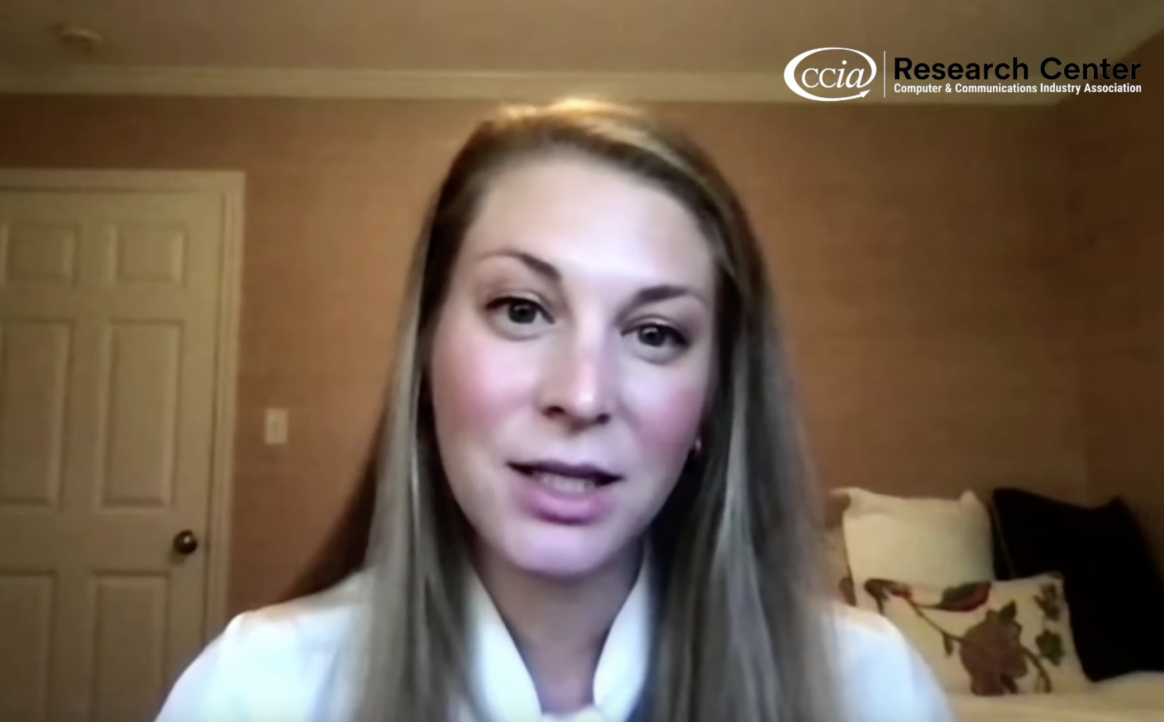Narrowing Section 230 Could Destroy Smaller Platforms, Warns Nextdoor
Many small to mid-sized platforms operate on a business model that relies on content moderation.

WASHINGTON, April 4, 2023 — Narrowing Section 230 protections for online services could have significant economic repercussions, particularly for smaller platforms that rely on content curation as a business model, according to experts at a panel hosted by the Computer & Communications Industry Association Research Center on Tuesday.
“There’s really unintended consequences for the smaller players if you take a ‘one size fits all’ approach here,” said Laura Bisesto, global head of policy, privacy and regulatory compliance for Nextdoor.
Many small to mid-sized platforms operate on a business model that relies on content moderation, Bisesto explained. For example, Reddit hosts thousands of active forums that are each dedicated to a stated topic, and consumers join specific forums for the purpose of seeing content related to those topics.
Similarly, Bisesto claimed that Nextdoor’s proximity-based content curation is what makes the platform competitive.
“We want to make sure you’re seeing relevant, very hyper-local content that’s very timely as well,” she said. “It’s really important to us to be able to continue to use algorithms to provide useful content that’s relevant, and any narrowing of Section 230 could really impede that ability.”
Algorithmic organization is also crucial for large platforms that host a broad range of content, said Ginger Zhe Jin, a professor of economics at the University of Maryland. The sheer volume of content on platforms such as YouTube — which sees 500 hours of new video uploaded each minute — would make it “impossible for consumers to choose and consume without an algorithm to sort and list.”
Without Section 230, some companies’ platforms might choose to forgo the use of algorithms altogether, which Jin argued would “undermine the viability of the internet businesses themselves.”
The alternative would be for companies to broadly remove any content that could potentially generate controversy or be misinterpreted.
“Either way, we’re going to see maybe less content creation and less content consumption,” Jin said. “This would be a dire situation, in my opinion, and would reduce the economic benefits the internet has brought to many players.”
Who should be updating Section 230?
In February, the Section 230 debate finally reached the Supreme Court in a long-awaited case centered around intermediary liability. But some industry experts — and even multiple Supreme Court justices — have cast doubt on whether the court is the right venue for altering the foundational internet law.
Bisesto argued that the question should be left to Congress. “They drafted the law, and I think if it needs to be changed, they should be the ones to look at it,” she said.
However, she expressed skepticism about whether lawmakers would be able to reach a consensus, highlighting the “fundamental disagreement” between the general Republican aim of leaving more content up and Democratic aim of taking more content down.
If the Supreme Court refrains from major changes, “pressure will increase for Congress to do something as the 50 different states are passing different statutes on content moderation,” said Sarah Oh Lam, a senior fellow at the Technology Policy Institute.








